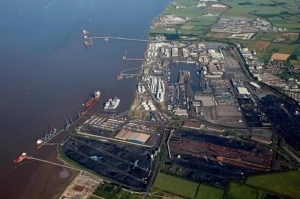


(Posted on 07/09/20)
The British Ports Association has welcomed new legislation introduced to fast track the planning processes for Brexit related border infrastructure, at and around ports, but is warning that there is still a lot to be done in a short period of time.
Commenting the British Ports Association’s Chief Executive, Richard Ballantyne said, “The legislation introduced to bypass the planning processes for border infrastructure in England is certainly a welcome move. However there is still a lot to be done to get ready for 2021. At various stages next year new customs and border control processes will be introduced on European trade and our ports are working with government to look at what needs to done.
We want to see a swift roll-out of the government's infrastructure ambitions so that our gateways to Europe are ready but there could also need to be some pragmatism needed. There is now a huge amount of government activity in this area, but the clock is certainly ticking.
The sensible and measured implementation of the new border requirements could be essential for all parts of the freight and logistics industry. Further easements may be needed next year at the end of the transition period but that discussion needs to be held at high level.”
New physical and digital infrastructure is being prepared to facilitate customs and other borders processes on freight being transported between Britain and Europe and also for Northern Irish traffic. This can involve new inspection facilities and IT systems to undertake new frontier controls which come in on trade as a result of the UK’s departure from the Single Market and the Customs Union.
The British Ports Association represents 86% of UK port traffic including all the main Roll-on Roll-off gateways such as Birkenhead, Dover, Fishguard, Holyhead, Hull, Immingham, Killingholme, Newhaven, Pembroke, Plymouth, Poole, Portsmouth, Purfleet and Tyne, which collectively facilitate tens of thousand of lorry and trailer movements between Europe and the UK each day. It is this part of the ports industry which new border control processes could impact the most.
The BPA also represents all the ports in Northern Ireland and has been working closely with the UK Government’s Board Planning and Delivery Group and the HMRC to explore what needs to be done as we approach the end of the Brexit transition period.
With this year’s Rail Conference “Rail Freight Transport and Seaports”, a joint initiative... Read more
Asian Bulk Logistics (ABL Group) and ICG have jointly announced the successful completion of ABL&rsquo... Read more
Abu Dhabi based AD Ports Group, a leading global enabler of integrated trade, industry and logistics... Read more
The Executive Board of Hamburger Hafen und Logistik AG (HHLA) has appointed Patrick Krawutschke as Managing... Read more
Abu Dhabi based AD Ports Group, a global enabler of integrated trade, transport, industry, and logistics... Read more
This year marks a significant milestone in maritime innovation as Port Hedland, Australia, celebrates... Read more
Associated British Ports (ABP), the UK’s leading port operator, has announced the latest tranche... Read more
During the Investment, Labour, and Trade Promotion Programme in Japan (November 16–22, 2025),... Read more
AD Ports Group subsidiary Khalifa Economic Zones Abu Dhabi - KEZAD Group, the largest operator of integrated... Read more
Abu Dhabi based AD Ports Group, a global enabler of integrated trade, transport, industry, and logistics... Read more